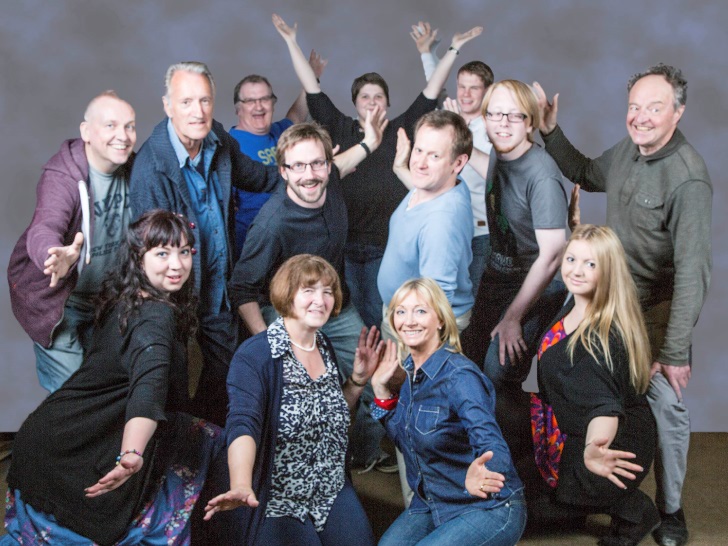
 |
|
|
|
|
Stars explained: * A production of no real merit
with failings in all areas. ** A production showing evidence of not
enough time or effort, or even talent, and which never breathes any real
life into the piece – or a show lumbered with a terrible script. *** A
good enjoyable show which might have some small flaws but has largely
achieved what it set out to do.**** An excellent show which shows a
great deal of work and stage craft with no noticeable or major
flaws.***** A four star show which has found that extra bit of magic
which lifts theatre to another plane. |
|
Giving bite to a centenary The combatants lining up for a lovely war - and they'll all be home by Christmas Oh What A Lovely
War
The Nonentities
The Rose Theatre, Kidderminster
**** IN this
centenary year commemorating the outbreak of the First World War, the
Nonentities have presented a lively and thoroughly enjoyable recreation
of Oh What A Lovely War. This ensemble show was the creation of Joan
Littlewood’s Theatre Workshop in 1963, not the product of a single
writer, but the fruit of improvisations by a troupe of actors under the
guidance of Littlewood at the Theatre Royal in Stratford, East London. They explored the events of the Great War through
a medley of songs and sketches stitched together with projections
with Newspanels that move the story along chronologically, and that
statistically remind us of the horrendous casualties resulting from the
obstinate and inhumane strategies pursued by ‘the top brass’. The show provides us with a variety of contrasted perspectives: the ordinary soldiers in the trenches, the politicians in Westminster, the generals, the Germans, the women at home an so on. There is great variety of tone too: the solemn and emotional pathos of some moments is contrasted with the comical and the highly satirical. The satire is overall the dominant tone in the
piece: the arrogance of the politicians and ruling classes of Europe,
and the total insensitivity and blind obstinacy of the generals are
exposed with biting satire, compared to the earthy and A foreign observer comments in Act Two: the
British infantry ‘fight like lions but are led by donkeys’.
This is quite an ambitious undertaking for an
amateur company. The cast are required to sing, to dance at times, to
act a variety of roles and adopt a range of accents. It is an exciting
challenge! The Nonentities are to be commended for embracing the
challenge wholeheartedly and providing a rich and varied evening’s
entertainment. The show opened a bit slowly. The ‘Overture’ of
First World War songs was intended to get the audience going but this
enjoyed limited success. However the moment the cast burst onto the
scene with the opening song the show came alive. The singing by the ensemble was very good: they
achieved a rich sound and some delightful harmonies. The musical
director has them well trained. There are a number of strong and
delightful voices in the cast and the solos were almost all very strong,
especially those delivered by the women. With few lapses or exceptions the acting was
good: at times a few speeches were difficult to decipher, for instance
when the RSM is drilling the troops, but that is not so unrealistic in
fact! There were some excellent performances; again the women were
consistently strong. The choreography was unambitious but simple and
satisfying, the costumes were coherently conceived, the lighting very
effective and the sound effects contributed fully and successfully to
the creation of atmosphere. The show is composed of various sketches
In the recruitment scene, effective use was made
of the auditorium and indeed one luckless member of the audience, who
was swept up into the army to earn the King’s shilling. In the final scene the veterans sing about how,
when asked about their experiences, ‘we’ll never tell them, no, we’ll
never tell them’. The poppies on the screen and floating from the skies
provide a moving moment of genuine pathos. The direction of the show by Jen Eglinton is
assured and consistent – she has done an excellent job of bringing all
the diverse elements of the show together and the whole cast exude a
sense of life, vigour and enjoyment. This production began on a high note and will get
stronger through the week; the company deserve full houses. Presented in
a way that can appeal to a wide age range, it is a sobering reminder of
the sacrifices of our forebears. Tim Crowe09-06-14 |
|
|
|